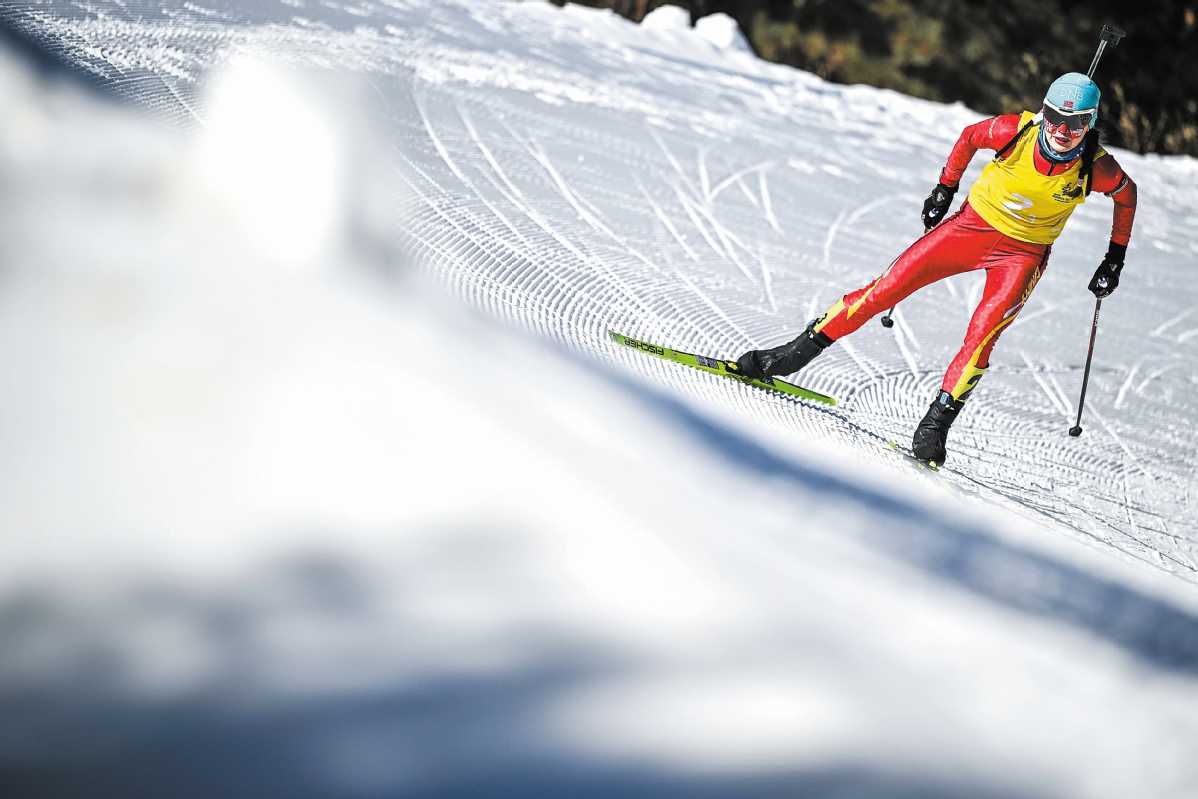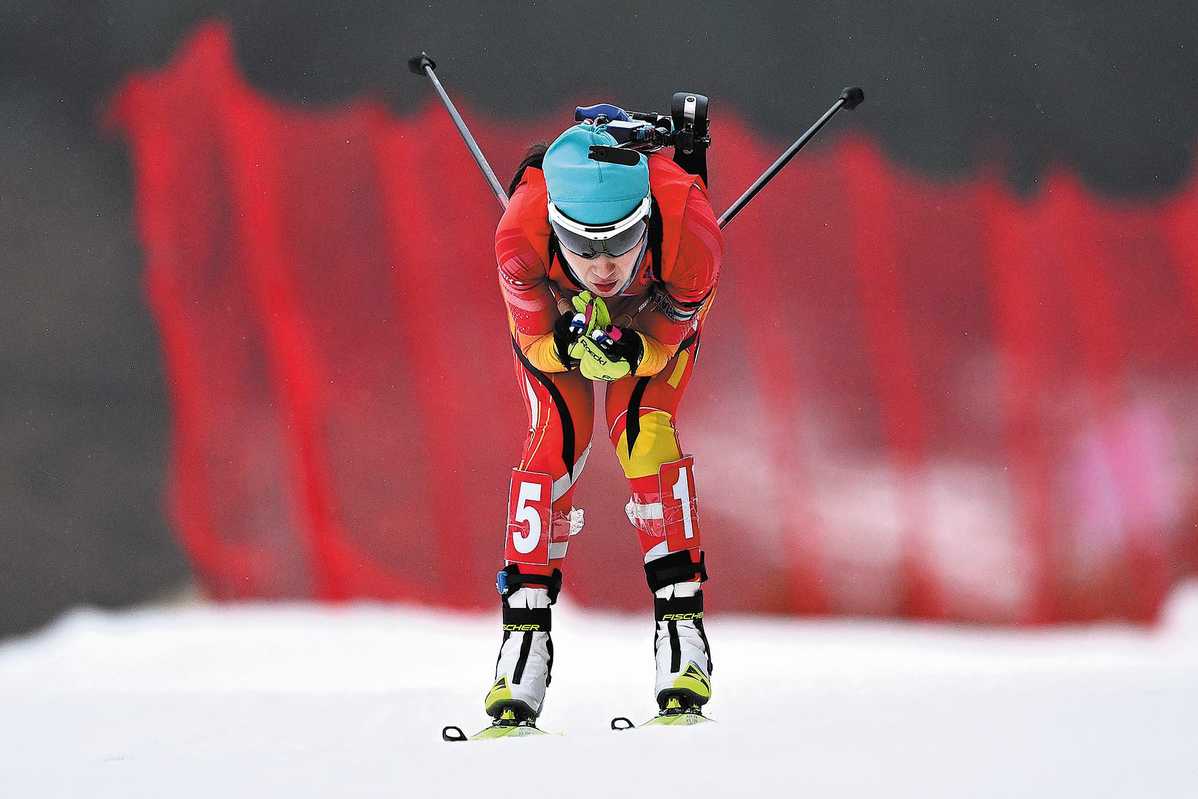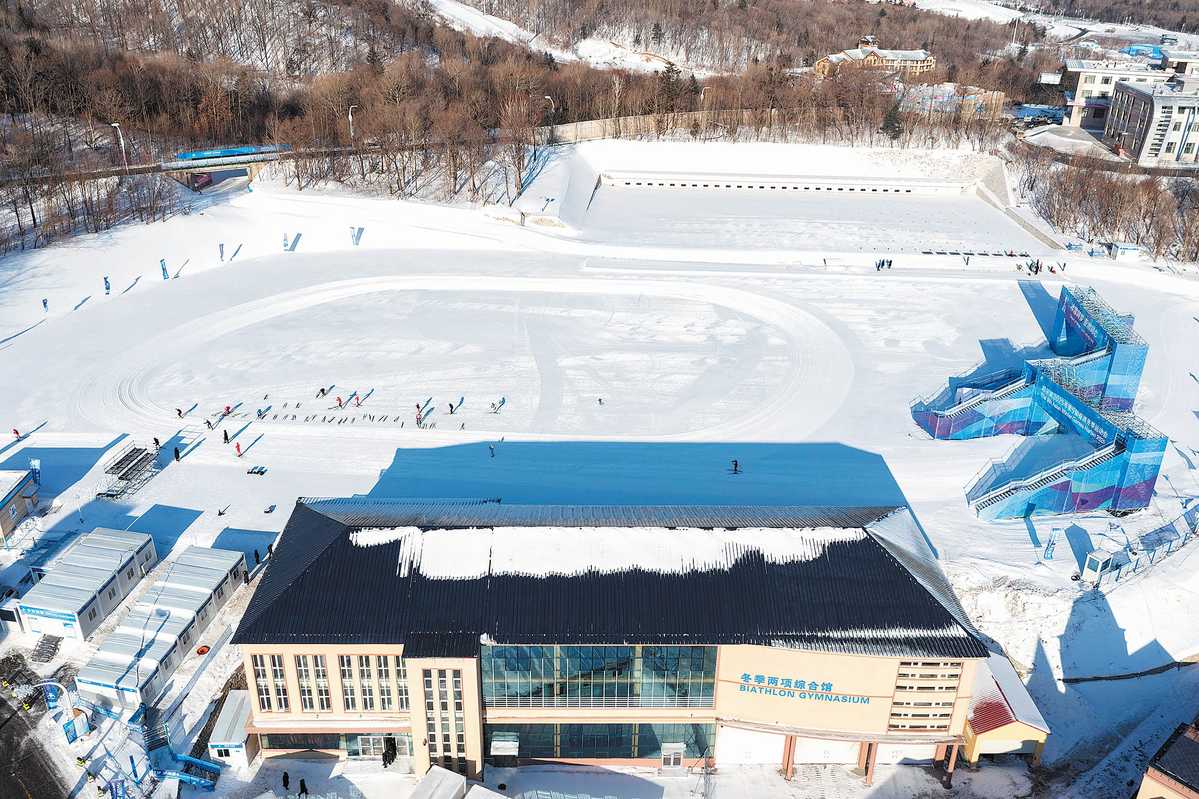
Cross-country skiing, alpine skiing and the biathlon may not be among the most-watched sports being contested at the Games, but there will be intense competition between China and its highly skilled continental rivals. XINHUA AND PROVIDED TO CHINA DAILY
As anticipation builds for the 2025 Asian Winter Games, the Yabuli Ski Resort, 200 kilometers from downtown Harbin, is set to host the event's snow sports program, with hundreds of athletes from across Asia vying to finish on the highest step of their discipline's podium.
Scheduled to be contested between Feb 8 and 13, cross-country skiing, alpine skiing and the biathlon may not be among the most high-profile sports on the schedule, but the level of competition is incredibly high.
To prepare for the upcoming Asian Winter Games, the Yabuli Ski Resort has initiated a series of infrastructure upgrades, including a full overhaul of its ski slopes and snowmaking systems. These improvements cover key courses for alpine skiing, cross-country skiing, and other snow sports.
In January, the Yabuli Ski Resort hosted a biathlon test event for the Asian Winter Games, in which athletes from China's national team and the Heilongjiang team competed.
Jiang Yang, team leader of China's biathlon team, confirmed that the country will field a squad of 12 athletes — six men and six women — for the Asian Winter Games, with four team members having previously competed at the Beijing Winter Olympics. Veteran athlete Tang Jialin is the only member of the team who participated in the previous Asian Winter Games in Sapporo, Japan, in 2017.
China's biggest threat in the biathlon is Kazakhstan, while athletes from Japan and the Republic of Korea are also expected to challenge for medals.

Cross-country skiing, alpine skiing and the biathlon may not be among the most-watched sports being contested at the Games, but there will be intense competition between China and its highly skilled continental rivals. XINHUA AND PROVIDED TO CHINA DAILY
This season, 10 Chinese athletes have gained valuable international experience, competing in World Cups and the European Championship in Sweden and Norway, among others.
Many of these athletes, born in the late 1990s and early 2000s, are competing abroad for the first time, building their experience in preparation for the Asian Winter Games.
Jiang noted: "This season, our team combines veterans and younger athletes. The veterans bring a wealth of competition experience and stable shooting performance, while the younger athletes must learn from international competitions, reduce errors, and adjust to new and stricter regulations."
He also pointed out a standout performance from Meng Fanqi at a World Cup event in Finland, where she hit all four shooting targets in extreme wind conditions, ranking first out of more than 100 competitors in shooting accuracy. Additionally, 22-year-old Gu Cang secured World Cup qualification on his international debut.
According to Jiang, the national biathlon team was officially formed on July 10 last year.
Building on a foundation of scientific training and innovative development, the team has focused on enhancing both skiing speed and shooting accuracy, with personalized training plans tailored to each athlete's strengths.
Since the start of this season's international competitions, athletes have shown significant improvements in tactical execution and performance under pressure, demonstrating greater consistency in challenging weather conditions, Jiang said.
Biathlon has been a strong event for China at the Asian Winter Games, where the team has won a total of 15 golds, 19 silvers, and 16 bronzes — 50 medals in total. Jiang emphasized that the team will maintain its high morale and aim for even greater success at the upcoming Games in Harbin.
The cross-country skiing competition at the 9th Asian Winter Games will take place from Feb 8 to 12, with six gold medals up for grabs. China has previously won four golds, eight silvers, and 19 bronzes, totaling 31 medals in the history of cross-country skiing at the Games.

Cross-country skiing, alpine skiing and the biathlon may not be among the most-watched sports being contested at the Games, but there will be intense competition between China and its highly skilled continental rivals. XINHUA AND PROVIDED TO CHINA DAILY
At the last Asian Winter Games, Chinese athlete Man Dandan won gold in the women's 1.4-kilometer individual sprint classical, marking China's first gold medal at that edition of the Games. This year, the Chinese team is aiming even higher.
In alpine skiing, China has yet to claim a gold, having won only two bronze medals at previous editions of the Winter Asiad. However, the team made a breakthrough at the 2022 Beijing Winter Olympics by qualifying for all alpine skiing events. As the host nation for this year's Games, China is determined to achieve better results in alpine skiing.
While this year's Games will feature stalwart teams from China, Japan, and ROK in all events, Cambodia and Saudi Arabia will compete in some for the first time.
Zhang Haihua, deputy secretary-general of the Organizing Committee of the Asian Winter Games and vice-mayor of Harbin, noted that alpine skiing has seen the highest number of registrations, with 25 countries and regions participating, including nations from South Asia, Southeast Asia, and the Middle East. Countries such as Nepal, Bhutan, India, Singapore, Malaysia, Thailand, as well as the United Arab Emirates and Kuwait, have all signed up.
"This reflects the rapid growth of winter sports in Asia, especially since the Beijing Winter Olympics," Zhang said. "With the successful hosting of this year's Asian Winter Games, we believe the reach and influence of winter sports in Asia will continue to expand, turning 'cold ice and snow' into a 'hot sport' in the region."
Contact the writer at liyingxue@chinadaily.com.cn